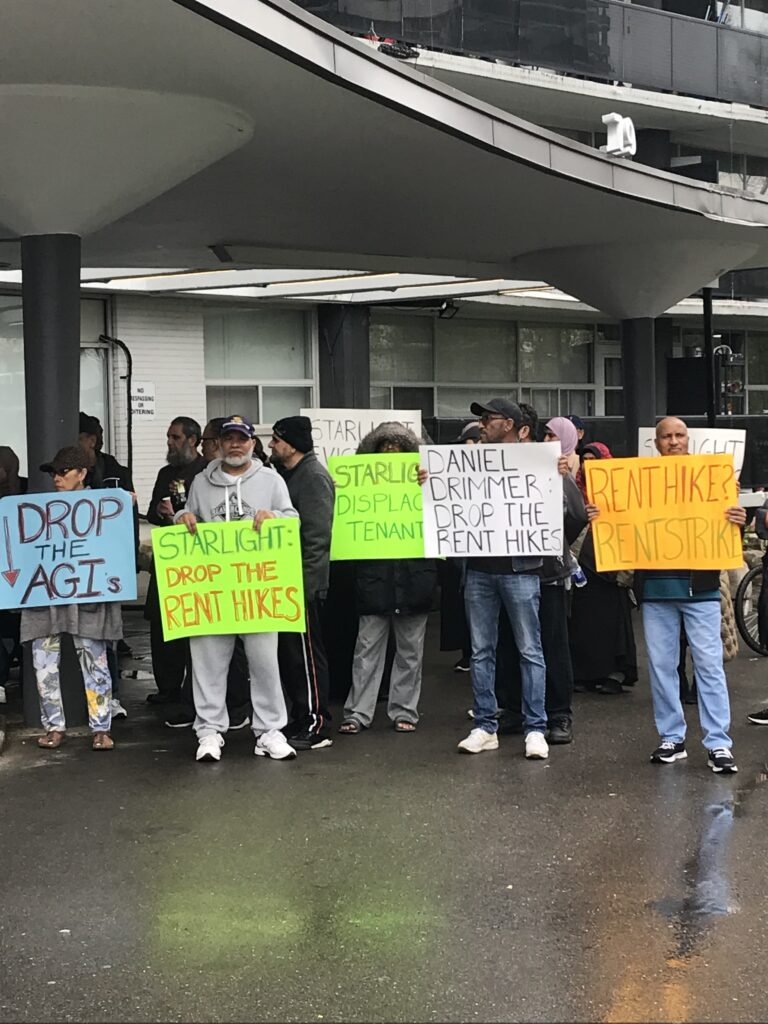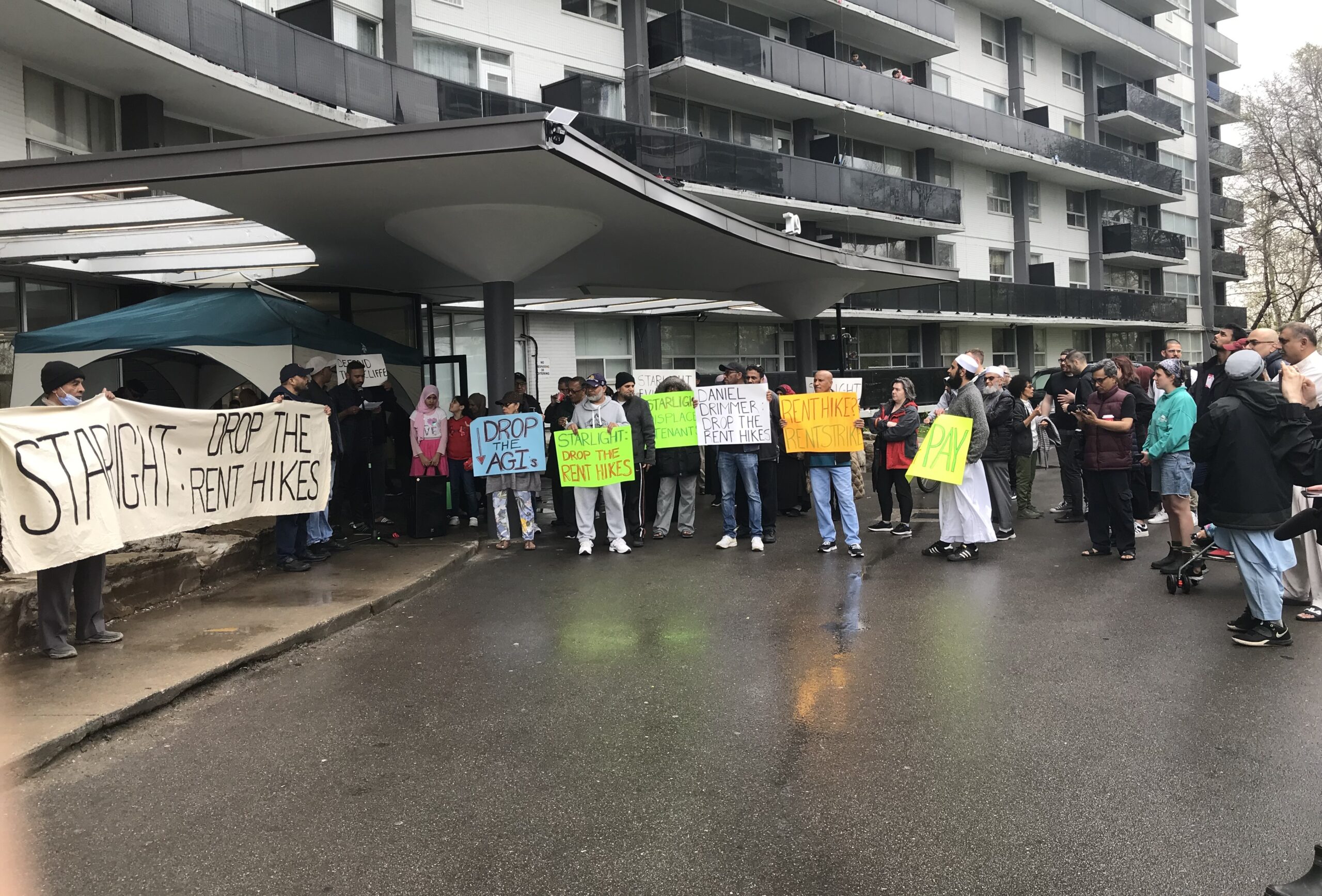April 28 marked one year into the Thorncliffe Park rent strike, a collective tenant protest against above guideline rent increases (AGIs) proposed by their landlord. Tenants from three buildings, 71, 75 and 79 Thorncliffe in Toronto, gathered out front to celebrate and send a message to corporate landlords PSP and Starlight investments. “You say rent hike, we say rent strike,” chanted the crowd.
“It’s been quite difficult for many,” says Sameer Beyan, who has been living at Thorncliffe for the last eight years. “Many people live paycheque to paycheque. Tenants are supported on basic income like the Ontario Disability Support Program or their pensions. They are fighting against a landlord who has increased the rent so much that some are paying more than 100% of their income.”
Legally, landlords in Ontario can raise rent by prescribed amount each year without going to the Landlord Tenant Board (LTB). For 2024 and 2023, that amount is 2.5%. However, Starlight is raising rent by 5.33% to 6.37%, and it isn’t the first time it has exceeded the guideline. Sameer says that his first above guideline rent increase was in 2022, then another in 2023. “We are talking here close to nine, 10% over the past two years for my case.”
Starlight officially says the above guideline rent increases are needed to repair the buildings, but residents say no repairs have been done. “For years, more than a decade, nothing has changed. Things haven’t been taken care of,” says Thorncliffe resident Jawad. “It's just cosmetic changes outside to attract new renters. The inside units have not been taken care of. Cabinets are broken. Appliances don't work. Paint is peeling off. It can be pretty bad.”
Instead of repairs and maintenance to apartments, landlords renovate common spaces such as front lobbies while at the same time claiming that the AGIs are needed for apartment repairs. This is part of a growing trend in which investment funds and corporate landlords across Canada are able to easily raise rent above governmental guidelines and collect higher dividends, with tenants bearing the cost.

“After one year of struggle, of protesting, we want the landlord to actually discuss it with us as a group,” says Jawad. “But the landlord doesn’t want to do that. They only want one-on-one, so the group will be broken up.”
“We tried to approach the landlord multiple times,” says Sameer. “It was the same: they just didn’t respond to us. Eventually, we have decided we have to do the rent strike. It’s a very big step for us. It took us over two years to protest this.”
As part of the rent strike, Thorncliffe Park tenants have been working as a collective with the LTB in hopes of solving the rent dispute. The tenants have been paying their rent, without the above guideline increase applied, from November 2023 onwards into a trust held by the LTB during the negotiations, which will be paid out to Starlight after the dispute is settled.
Many renters across the Toronto area are exercising their legal right to organize tenant unions and negotiate collectively with landlords as a group. Members of the York South-Weston Tenants Union are currently engaged in rent strikes against the landlords Dream Unlimited and Barney River Investments. Just as workers form labour unions to negotiate better wages and working conditions, tenant unions are a tool which allows renters to work collectively to negotiate better rent control and living conditions.
- CAPREIT extracts as much money as possible from their tenants
- A Law Written for and by Landlords
- The Legault Government Launches an Attack on Tenants
- A Campaign for a Moratorium on Evictions
- When Politics and Business Violate Tenants’ rights
- Real estate developers reinforce shortage by reducing housing starts
- What effects will the adoption of Québec’s Bill 31 have?
- Housing bill continues to be denounced by unions and housing groups
- Conflict of interest for Quebec’s tenant-landlord tribunal?
- One year later, tenants still standing up to excessive rent increases
- Developers paying pennies to bypass affordable housing requirements in Montréal
- Build, but at what cost to tenants?
- A First Victory for Quebec Tenants Against the CAQ
- “Montreal attacks the homeless instead of homelessness”


